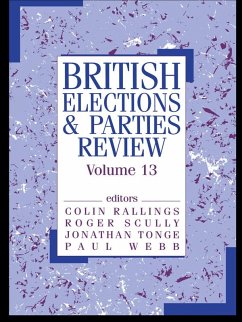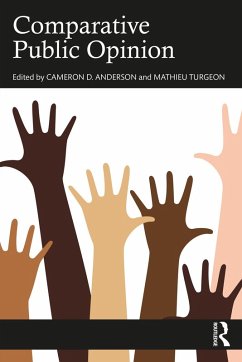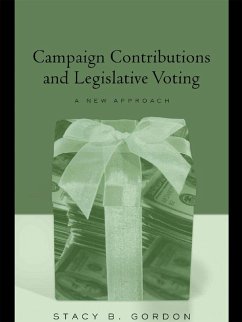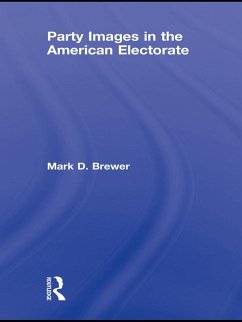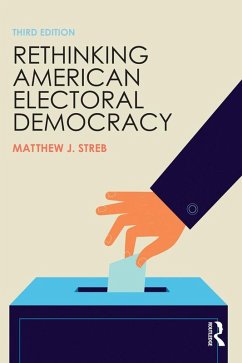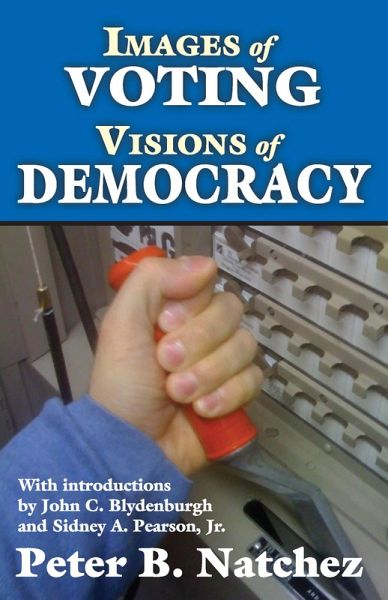
Images of Voting/Visions of Democracy (eBook, PDF)
Versandkostenfrei!
Sofort per Download lieferbar
45,95 €
inkl. MwSt.
Weitere Ausgaben:

PAYBACK Punkte
23 °P sammeln!
When survey research, statistics, and electronic data processing were first introduced, they held out promise that a new level of political knowledge would be created. Applied to the study of voting behavior, survey research promised an understanding of the factors determining the outcome of an election, that political history could be based on rich and current data, and that we could begin to understand the role of elections in constitutional democracy. The truth as Peter B. Natchez shows, is that despite the opportunity provided by this revolution, voting studies have failed to make signific...
When survey research, statistics, and electronic data processing were first introduced, they held out promise that a new level of political knowledge would be created. Applied to the study of voting behavior, survey research promised an understanding of the factors determining the outcome of an election, that political history could be based on rich and current data, and that we could begin to understand the role of elections in constitutional democracy. The truth as Peter B. Natchez shows, is that despite the opportunity provided by this revolution, voting studies have failed to make significant contributions to democratic theory or political history.The findings of voting studies have spread from the universities into the political system with a rather grim message. In its simplest form the message is this: the electorate does not measure up to the task thrust upon it by democracy. The studies conclude that voters choose candidates for reasons having little relevance to the success of the political system, and little relevance even to politics. Thus political science, in shifting from an optimistic focus on theory to a strong emphasis on empiricism, became a source of pessimism.One cannot study democracy or the democratic process without a point of view on democracy. The scientific method requires a point of view: science is not only a method for discovering reality, but for addressing well-structured questions. Natchez identifies goals for democracy, freedom and tolerance, and consciousness in decision making. Elections serve two functions; one, filling constitutional offices, and two, a symbolic function rooted in democratic experience that is more ambiguous, but no less vital as a part of regime analysis. A political science that connects these two aspects of voting will require an analysis of why voters vote the way they do to fill offices; but, more importantly, it will also require an understanding of the symbolic function of elections.
Dieser Download kann aus rechtlichen Gründen nur mit Rechnungsadresse in A, B, BG, CY, CZ, D, DK, EW, E, FIN, F, GR, HR, H, IRL, I, LT, L, LR, M, NL, PL, P, R, S, SLO, SK ausgeliefert werden.




